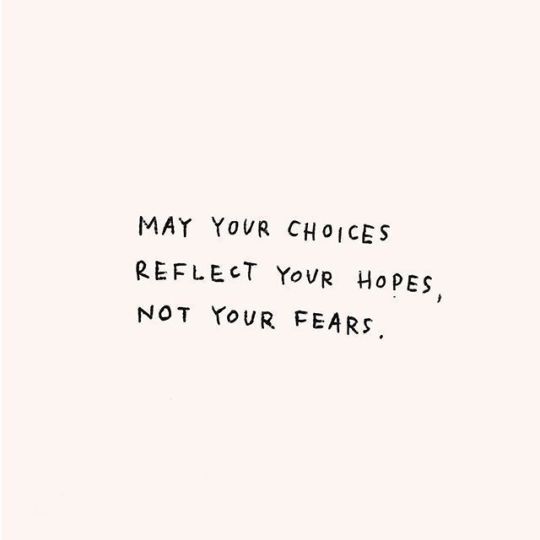#chris hedges
Explore tagged Tumblr posts
Text








106 notes
·
View notes
Quote
I’m not saying we’re going to win. I am saying rebellion becomes a way to protect your own dignity. Corporations are, theologically speaking, institutions of death. They commodify everything – the natural world, human beings – that they exploit until exhaustion or collapse. They know no limits.
Chris Hedges

121 notes
·
View notes
Text







Suzanne Collins, Gregor the Overlander / Neal Shusterman, UnSouled / Chris Hedges / Nelson Mandela / Suzanne Collins, Gregor and the Code of Claw
#The Underland Chronicles#Gregor the Overlander#TUC#GTO#Suzanne Collins#Underland Chronicles#web weaving#intertextuality#Neal Shusterman#UnSouled#Chris Hedges#Nelson Mandela#so. i almost cried while making this#THERE ARE SO MANY REASONS TO TRY
49 notes
·
View notes
Text
Technofeudalism: What Killed Capitalism - Yanis Varoufakis
youtube
This is the future my friends. And it ain't good.. It's class warfare on steroids.. They want to make everyone pay rent for everything. We need collective action now!
#serfdom#class warfare#technofeudalism#yanis varoufakis#brilliant mind#chris hedges#rent#make everyone pay rent for everything#Youtube
16 notes
·
View notes
Text
Chris Hedges on empires
#tiktok#chris hedges#gaza#palestine#united states#us imperialism#empire#imperialism#colonialism#colonization
44 notes
·
View notes
Text

“The assassination of Trump would not remove the yearning of tens of millions of people, many conditioned by the Christian right, for a cult leader. Most of the leaders of the Christian right have built cult followings of their own. These Christian fascists embraced magical thinking, attacked their enemies as agents of Satan and denounced reality-based science and journalism long before Trump did. Cults are a product of social decay and despair, and our decay and despair are expanding, soon to explode in another financial crisis.
The efforts by the Democratic Party and much of the press, including CNN and The New York Times, to discredit Trump, as if our problems are embodied in him, are futile. The smug, self-righteousness of this crusade against Trump only contributes to the national reality television show that has replaced journalism and politics. This crusade attempts to reduce a social, economic and political crisis to the personality of Trump. It is accompanied by a refusal to confront and name the corporate forces responsible for our failed democracy. This collusion with the forces of corporate oppression, which have impoverished the working class, fostered endless war, militarized our police, created the largest prison system in the world, licensed corporations to exploit the most vulnerable and transferred wealth upwards into the hands of a billionaire class, neuters the press, Trump's critics and the Democratic Party.
Our only hope is to organize the overthrow of the corporate state that vomited up Trump. Our democratic institutions, including the legislative bodies, the courts and the media, are hostage to corporate power. They are no longer democratic. We must, like resistance movements of the past, engage in acts of sustained mass civil disobedience, especially strikes, and non-cooperation. By turning our ire on the corporate state, rather than Trump, we name the true sources of power and abuse. We expose the absurdity of blaming our demise on demonized groups such as undocumented workers, Muslims, African-Americans, Latinos, liberals, feminists, gays and others. We give people an alternative to a bankrupt Democratic Party -- whose presidential candidate is in clear cognitive decline -- that is a full partner in corporate oppression and cannot be rehabilitated. We make possible the restoration of an open society. If we fail to embrace this militancy, which alone has the ability to destroy cult leaders, we will continue the march toward tyranny.”
33 notes
·
View notes
Text
We are a culture that has been denied, or has passively given up, the linguistic and intellectual tools to cope with complexity, to separate illusion from reality.
We have traded the printed word for the gleaming image. Public rhetoric is designed to be comprehensible to a ten-year old or an adult with a sixth grade reading level. Most of us speak at this level, are entertained and think at this level.
-Empire of Illusion: The End of Literacy and the Triumph of Spectacle, by Chris Hedges
#Chris Hedges#Empire of Illusion#culture#philosophy#political philosophy#intellect#literacy#media#Hedges
15 notes
·
View notes
Text

In 1968 Finland banned for profit education, the few private schools that exist in Finland have to reinvest any profit they make or pay it back to parents. It has been in the Top 3 in education for the last 20 years. There should be no profit in education or healthcare.
[Bladeofthesun]
+
The public defunding of universities, along with their seizure by corporations and the uber rich, is part of the slow-motion corporate coup d’état. The goal is to enforce conformity and obedience, to train young people to fill their slots in the corporate machine and leave unquestioned the status quo. The accumulation of vast wealth, no matter how nefarious, is prized as the highest good. Those who mold, shape, inspire and educate the young are neglected. Rutgers, like most large universities, pours resources into Science, Technology, Engineering, and Math (STEM) programs that “Corporate America” values. The fundamental aim of an education, to teach people how to think critically, to grasp and understand the systems of power that dominate our lives, to foster the common good, to construct a life of meaning and purpose, are sidelined, especially with the withering away of the humanities.
Chris Hedges (via azspot)
+
The final stages of capitalism, Karl Marx predicted, would be marked by global capital being unable to expand and generate profits at former levels. Capitalists would begin to consume the government along with the physical and social structures that sustained them. Democracy, social welfare, electoral participation, the common good and investment in public transportation, roads, bridges, utilities, industry, education, ecosystem protection and health care would be sacrificed to feed the mania for short-term profit. These assaults would destroy the host. This is the stage of late capitalism that Donald Trump represents.
Chris Hedges (via azspot)
21 notes
·
View notes
Text
48 notes
·
View notes
Text
instagram
32 notes
·
View notes
Text

Willful blindness, historical amnesia, and disregard for the rule of law fuel the Global North’s belief that industrial violence is its right—is paving the way for more mass slaughter of the world’s poor and vulnerable.
Read More: https://thefreethoughtproject.com/featured/chris-hedges-the-western-way-of-genocide
#TheFreeThoughtProject
#the free thought project#tftp#war#chris hedges#gaza#antiwar#genocide#USSA#industrial violence#global north
4 notes
·
View notes
Text
Warning signs of the instability of the global financial system abounded in the months leading up to the 2008 Lehman Brothers crash. Among these early signs were the astounding revelations about UBS, the world’s largest private bank, by Stephanie Gibaud, who was employee at the bank’s French division. Gibaud refused instructions given to her and other employees to delete all their company files. In doing so, she helped reveal a vast web of corruption and fraud linking UBS to a shadowy tax evasion scheme. More than 15 years later, Gibaud has endured harassment, professional ostracization, lawsuits, and threats. She joins The Chris Hedges Report to speak on her ordeal and the extent of corruption in the international banking system.
Chris Hedges: Stephanie Gibaud in June, 2008, was ordered by one of her managers at the UBS Bank in Paris, to destroy all her computer files that related to customers with offshore accounts in Switzerland. The order came in the wake of the 2007 American banker, Bradley Birkenfeld’s disclosure of client information to the US Department of Justice, which suggested that UBS was facilitating massive tax evasion schemes for its American clients, which ultimately led to a penalty of $780 million. Swiss banks have long been havens for those seeking to avoid taxes. In 2014, for example, Credit Suisse, which would also plead guilty to sheltering money for its clients so they could avoid paying taxes, had to pay $2.6 billion in penalties.
Gibaud, however, was the only bank employee at UBS who refused to delete her files. She protested to UBS management and French regulators. Her documents would eventually help to identify 38,000 offshore bank accounts amounting to $12 billion. UBS responded by trying to fire her as part of a mass redundancy of 100 employees during the 2008 financial crisis. The French Ministry of Work intervened, but her life at UBS became excruciating. She suffered harassment and discrimination along with social and professional isolation. She endured constant anxiety and depression. UBS fired her finally in 2012. She was sued for defamation by the bank after writing her book, The Woman Who Knew Too Much, part of a series of lawsuits that plague her to this day.
She requested compensation totaling 3.5 million euros and the judge gave her 4,500 euros, which barely covered her legal fees. UBS was eventually forced to pay a record fine in 2019 of $4.9 billion, but Gibaud found herself financially ruined and blacklisted from the financial sector where she had spent her career. The French legal system does not compensate whistleblowers, unlike the US. The Commodities Future Trading Commission, for example, recently awarded an anonymous whistleblower around $200 million for providing information about Deutsche Bank’s manipulation of the LIBOR benchmark. Birkenfeld, who exposed UBS’s offshore accounts for American clients, was handed a check from the US Treasury for $104 million, minus taxes. Gibaud is currently battling in the French courts to become the first legally recognized whistleblower, which could pave the way for greater protection and compensation.
35 notes
·
View notes
Text
what happens outside the empire will come back and harm those at the imperial core.
18 notes
·
View notes
Text
#american exceptionalism#capitalism#crisis of legitimacy#plutocracy#donald trump#joe biden#free palestine#genocide joe#oligarchy#chris hedges
13 notes
·
View notes
Text
These atheists, like Christian fundamentalists, corrupt evolutionary biology. They assert that evolutionary biology implies an absolute materialism that banishes the role of religion.
The Christian fundamentalists do this to discredit science and defend their absurd biblical myths. The new atheists do this to discredit religion and justify their faith in the cult of science.
These atheists use science the way religious fundamentalists use religion: to arrogate to themselves moral authority over all creation including those of their own species who are too dim to see the truth. They alone, they think, understand how to bring about collective salvation and redeem the human race.
— Chris Hedges, I Don’t Believe in Atheists
#Chris Hedges#Atheist#Atheism#Psychology#Religion#Evolutionary Biology#Scientism#Christianity#spirituality#Political Philosophy#Fundamentalists#Materialism#Philosophy#Hedges
7 notes
·
View notes